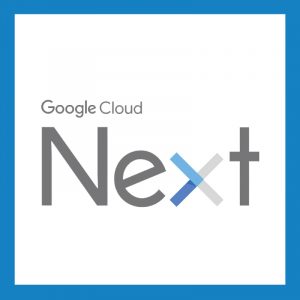
Google livestreamed the keynote address of its Marketing Next 2017 conference on May 23 which explored the future of Google products such as Adwords, Analytics and DoubleClick. Evolytics team members attended the Google Next livestream to see how Google’s plans for its marketing and measurement platforms will impact our clients’ analytic strategies.
While most of the keynote featured Google product managers showing off the latest and greatest capabilities of their different platforms, a few key trends emerged that reveal Google’s strategic vision for its technology suite and the potential impact on digital analytics.
INTEGRATION
Some solid, helpful integrations already exist between Google products and that list continues to grow. For example, AdWords and Google Analytics already connect directly to share goals, campaign data and audience data between the two systems. Making use of these effectively is what marketers, like those in the dNOVO Group, specialize in. Google is expanding integrations with Google Next across its suite of technologies, but the most important analytics-related announcement is Attribution.
Google technically has offered attribution in Google Analytics for a while now, but with limitations such as lack of display impression attribution and basic positional attribution models. Google Analytics 360 overcomes these limitations with direct connection to Google DoubleClick for display impression attribution and also provides an algorithmic “data-driven” attribution model, but the investment is significant for many companies. Google has also had a stand-alone paid attribution tool since 2014 when it acquired Adometry, which it updated and rebranded as Attribution 360 in 2016, but again you had to pay for it.
Google has now launched a free version of the Attribution platform that consolidates attribution reporting across AdWords, Google Analytics and DoubleClick Search without additional tagging. This new free version also provides access to the machine learning-powered attribution model previously only available in the paid Google Analytics 360 version. Attribution models can be set up in Attribution as the single source of conversion truth across the three platforms and then that data can be pushed out to AdWords and DoubleClick Search for automated bid management and reporting. This will hopefully solve many advertisers’ woes of trying to align conversion data ” from Google Analytics and Google’s paid search platforms
ASSISTANCE
Keynote presenters at Google Next made a concerted effort to weave the word “assistive” throughout all of their presentations. This “helpful” attitude is most evident in the Google Assistant platform which is now baked into all Google search apps and Google Home. These platforms provide voice-based search interaction and also surface relevant information to the user based on a user’s data, location, time, and context. All of this helpful functionality is based on machine learning algorithms, the key to assisting not only search users, but also analysts, advertisers, and marketers. Apart from the Google search platforms, the integration of Google Assistant in satellite television service providers like dish network and similar others, have not only made searching for favorite channels and movies easier but also has helped the marketers know their prospective market better.
Google also wants to assist you in using its advertising and analytic platforms. Google is adding guided setup processes to many of its platforms, similar to how Google Analytics already provides templates for defining different types of goals or how Google Tag Manager provides user-friendly tag templates for a variety of digital platforms. This could be similar to Amazon’s Amasuite (read more here https://www.sunkenstone.com/blog/amasuite-review/), which helps both affiliates and sellers strategically promote and sell their products. Almost like Google Analytics, Amasuite offers tools that can help business owners research keywords, fetch data, and even analyze the review of various products, whether this might be through surveying for customer product claims to find out the general overview on the products or services.
In the keynote, Google announced it’s revamping the Doubleclick Bid Manager planning tool into a more guided experience where you set your budget and choose your primary marketing objective, and then the tool recommends media placements and targeting strategies based on best practices and your past campaign performance. Essentially Google wants to hold your hand and help you use its platforms more, which hopefully increases your spend on its advertising networks.
FREEMIUM
Google wants to give you stuff like Google Analytics for free so that you spend money on its other stuff like AdWords. But if you ever become dissatisfied with the free stuff, you can buy more advanced, premium versions. Google continued to build on its “freemium” product and marketing strategy with its announcement of the upcoming free version of Attribution.
Out of the seven solutions in the Google Analytics 360 suite, five of the tools have free versions including Analytics, Tag Manager, Optimize, Data Studio and Attribution (coming soon). Google Surveys is also technically free to use but you have to pay for each survey complete, anywhere from $.10 to $3. AdWords functions similarly since you can technically set up campaigns for free, but you’ll start paying once you launch a campaign and people start clicking. The only Google 360 tool that doesn’t have a free version at this point is Audience Center. However, you can already access limited audience management functionality in Google Analytics by creating audiences based on website activity and pushing those audiences to AdWords for targeting and remarketing, or to Optimize for AB testing and personalization.
THE BIG PICTURE
Google Next continues to integrate the flow of data across Google’s suite of marketing and analytic technologies, seeking to build a robust marketing analytics tech stack. If the same freemium approach that made Google Analytics so ubiquitous in website analytics works for its other technologies, Google has a strong chance becoming a major player in the related disciplines of AB testing, data visualization and attribution modeling. The consolidation and integration trend also continues among major technology companies as they build and expand marketing analytics suites such as Adobe Marketing Cloud, Salesforce Marketing Cloud and the Google Analytics 360 Suite. At Evolytics, we take pride in being technology agnostic and having expertise across a breadth of different technologies such as Adobe and Google to recommend and implement best-fit analytic solutions that meet the unique needs of each of our clients.
